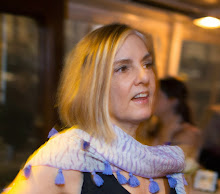I could feel him moving farther and farther away from me, especially as he moved into his teenage years, and searched for something we could do together, some way we could communicate. He began playing Diablo, a game that seemed to me to involve only endless dark caves and caverns where ghouls and skeletons and other horrible things lived. It seemed a depressing game that had no point but to kill. He loved it. He also loved a game called Quake, which involved a lot of killing as well, and lots of blood and gore. I hated this game, perhaps more than any of the others.
For Christmas, I bought games like Civilization and Age of Empires, games, I reasoned, that had some educational component. You could learn something about ancient civilizations, something about what it took to build a city and keep it running. Sure, there was still killing, but there was lots of other stuff, too. You could learn about managing resources (you could, in the game, fish all the fish out of the sea or kill all the deer and have nothing to eat). You could learn about the need to be environmentally conscious; in one game if you were not careful about how you developed your cities global warming could occur and destroy the entire world. If you didn't manage your international relationships well your cities could be blown up by hostile nations. I remember clearly the moment a beautiful city that had taken me weeks to build was destroyed by an atomic bomb and wiped off the face of the earth within moments. Sure, I'm an adult, I knew this could happen in real life, but something about being invested in creating this city and seeing it physically wiped out in front of my eyes, brought the whole thing home to me in a more visceral way.
Gray was never more than mildly interested in these games, although there were some times when we were able to play them together; for the first time it was he advising me on what to do. "Don't build your city there, mom," he'd say, "can't you see that's a bad place, that guys can sneak up from behind that grove of trees and attack you? And you should always build your city by water and where there's good resources."
He introduced me to the notion of role-playing games (RPGs); he was also playing Final Fantasy and Zelda on his Nintendo, and I felt better about this games. We had read Lord of the Rings together and shared a love of fantasy. We played Myst together as well, a game that was more about puzzle solving than anything else. I found myself drawn to the games that had a storyline, the ones that involved actual development of a character. Here was where my intellect and imagination really became engaged.
One Christmas I bought the game Baldur's Gate for Gray. An RPG set in a fantasy environment, it put emphasis on character development. The character makes moral choices and is rewarded or punished in the game for those choices. Relationships among characters are also developed. The games opening quotation is from Friedrich Nietzsche: "He who fights monsters should look to it that he himself does not become a monster . . . when you gaze long into the abyss the abyss also gazes into you."
